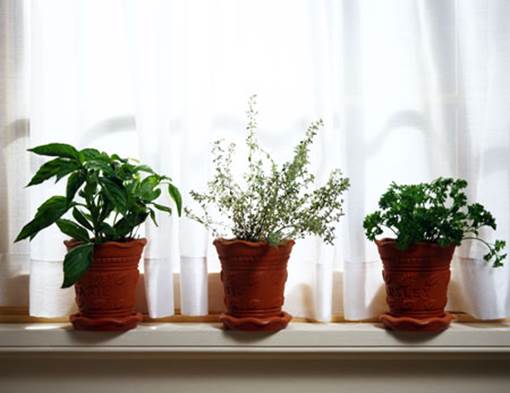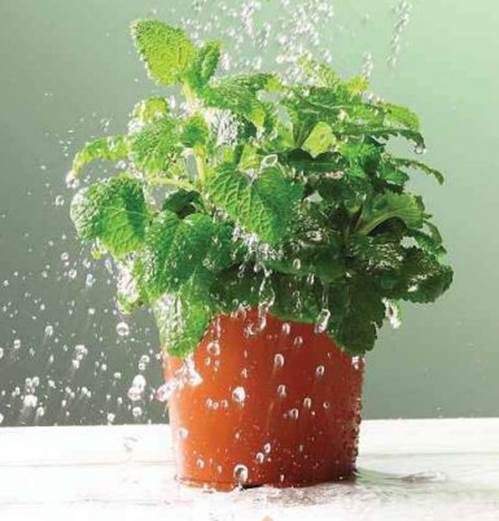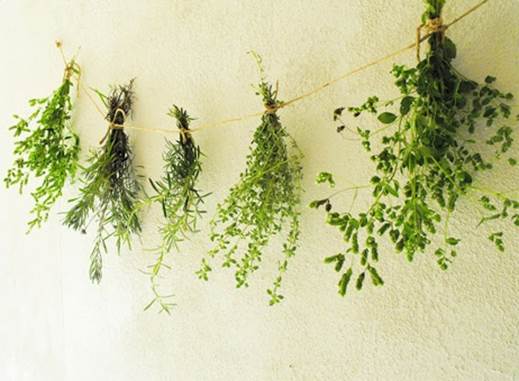Small but mighty, herbs are far more
than a garnish.
They’re the Yorkshire terriers of the
vegetable world: herbs may be small, but they make a lot of noise,
nutritionally speaking. In fact, if you want to do one thing to improve your
diet fast, adding a handful of herbs to your meals could make all the
difference.

They’re
the Yorkshire terriers of the vegetable world: herbs may be small, but they
make a lot of noise, nutritionally speaking
Herbs are packed full of ‘volatiles’:
essential oils with disease-fighting antioxidant properties. While we’ve all
heard about the antioxidant power of blueberries, a study published in the
Journal of Nutrition in 2003 found that herbs are higher in antioxidants than
fruit, including berries, and some vegetables. You can tell this by just
rubbing a lettuce leaf between your fingers - it goes sticky. Do this to a leaf
of basil and you can smell the oil on your fingers.

Do
this to a leaf of basil and you can smell the oil on your fingers.
These volatile oils have seen herbs prized
for their medicinal properties for thousands of years. The ancient Romans used
coriander as a preservative for meat; parsley is antibacterial; and mint tea is
still commonly used as a digestive across Europe and the Middle East to this
day. Dill, another digestive, has long been used in gripe water.
And modern science is catching up -
research increasingly backs the use of herbs in protecting us against disease
and easing discomfort. A study by the University of Adelaide demonstrated the
effectiveness of mint in reducing the symptoms of lBS. Researchers found that
mint activates anti-pain channels in the colon and reduces inflammation.

And
modern science is catching up - research increasingly backs the use of herbs in
protecting us against disease and easing discomfort.
So, what’s the best way to use herbs to
turbocharge your heath? The first thing to do is clear out those ancient jars
of dried herbs lurking at the back of your kitchen cupbod, because they’re next
to useless. In the same way that fruit and vegetables lose their vitamins the
longer they’re stored, herbs are the most powerful at their freshest.
According to a report by the Agricultural
University of Krakow, drying herbs reduces their vitamin and mineral content,
with water soluble vitamins such as B and C especially affected. Freeze-dried
and frozen herbs are handy, but for the best bang for your buck, always choose
fresh cut or potted.